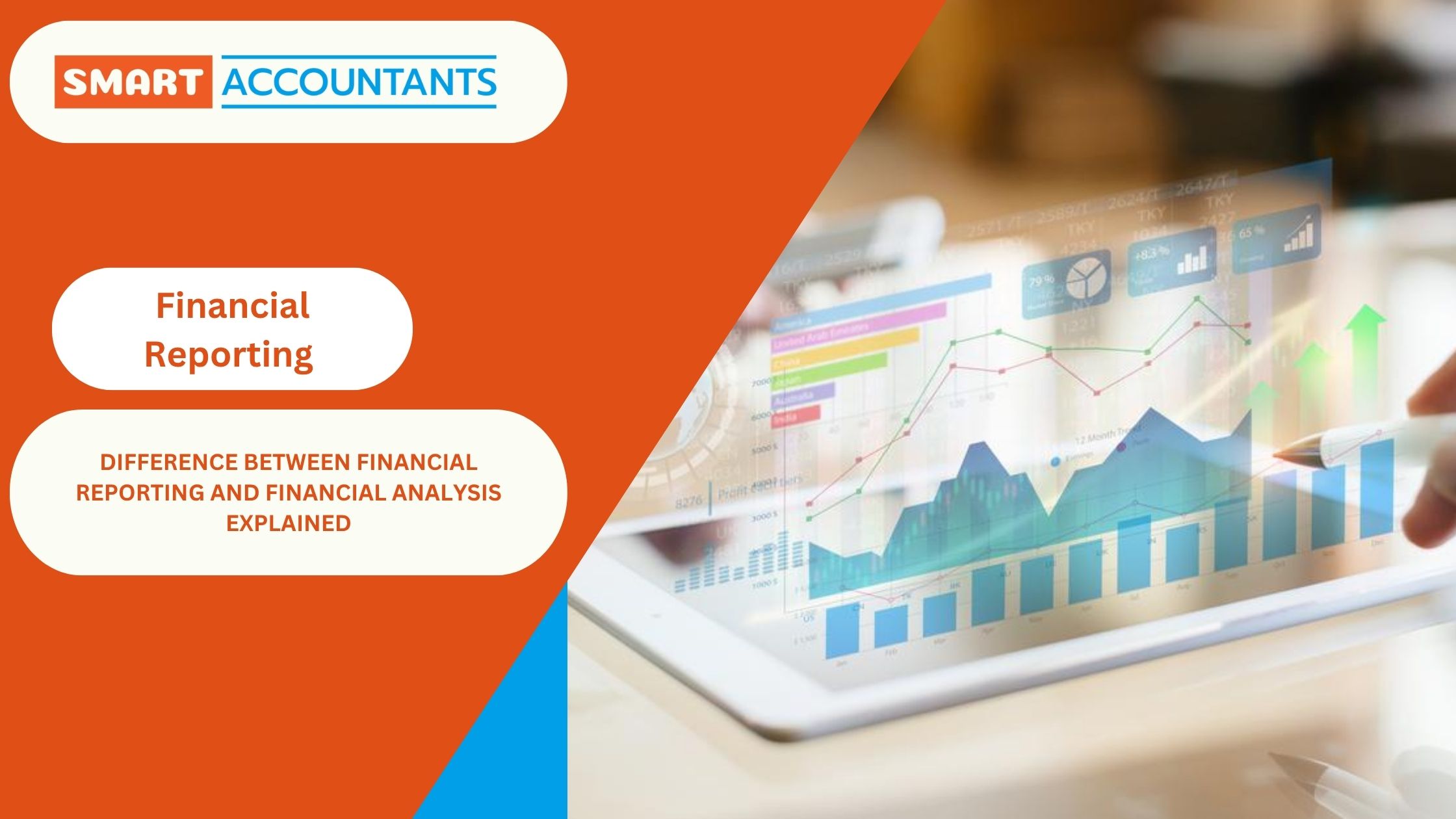Understanding the difference between financial reporting and financial analysis is crucial for businesses aiming to make informed decisions. Both play key roles in financial management but serve distinct purposes. This blog explores how these two functions differ and how professional financial reporting services can support both.
What is Financial Reporting?
Financial reporting is the process of preparing and presenting formal financial statements and disclosures that reflect a company’s financial position and performance. It involves compiling historical financial data in compliance with standards like GAAP or IFRS.
Key Outputs of Financial Reporting
- Income Statement
- Balance Sheet
- Cash Flow Statement
- Notes and Disclosures
Financial reports are primarily aimed at external stakeholders such as investors, regulators, and tax authorities.
What is Financial Analysis?
Financial analysis involves examining financial data to evaluate business performance, identify trends, and make forecasts. It is a more interpretative and forward-looking activity compared to financial reporting.
Common Financial Analysis Activities
- Ratio Analysis (e.g., profitability, liquidity ratios)
- Trend Analysis
- Variance Analysis (Budget vs Actual)
- Forecasting and Budgeting
- Risk Assessment
Financial analysis is used mainly by internal management to guide strategic decisions.
Key Differences Between Financial Reporting and Financial Analysis
| Aspect | Financial Reporting | Financial Analysis |
| Purpose | To communicate financial information | To interpret and use financial information |
| Focus | Historical data | Past, present, and future performance |
| Audience | External stakeholders (investors, regulators) | Internal stakeholders (management, executives) |
| Output | Financial statements and disclosures | Analytical reports, forecasts, insights |
| Regulatory Compliance | Mandatory and standardized | Not regulated, flexible |
How Financial Reporting Services Support Both Functions
Many professional financial reporting services offer integrated solutions that cover both accurate report preparation and detailed financial analysis, helping businesses:
- Ensure compliance with regulatory requirements.
- Gain actionable insights through data interpretation.
- Optimize budgeting and forecasting.
- Improve operational and financial decision-making.
Why Both Financial Reporting and Analysis Are Vital
- Financial Reporting builds credibility and trust by providing transparent financial information.
- Financial Analysis empowers businesses to optimize performance, plan growth, and manage risks.
Together, they provide a 360-degree view of your company’s financial health.
Summary: Bridging Reporting and Analysis for Business Success
At Smart Accountants, we understand that while financial reporting provides the essential foundation of historical data, financial analysis transforms this data into strategic insights. Leveraging expert financial reporting services that integrate both functions is key to making well-informed business decisions in 2025.
FAQs About Financial Reporting vs Financial Analysis
Q1: Can financial reporting exist without analysis?
Yes, but analysis adds value by interpreting the data.
Q2: Are financial analysis reports standardized?
No, they are tailored to business needs and objectives.
Q3: Who typically performs financial analysis?
Internal management or financial analysts, sometimes supported by reporting services.
Q4: How often should financial analysis be conducted?
Monthly or quarterly, depending on business dynamics.
Q5: Do financial reporting services offer analysis support?
Many provide combined reporting and analysis solutions.






